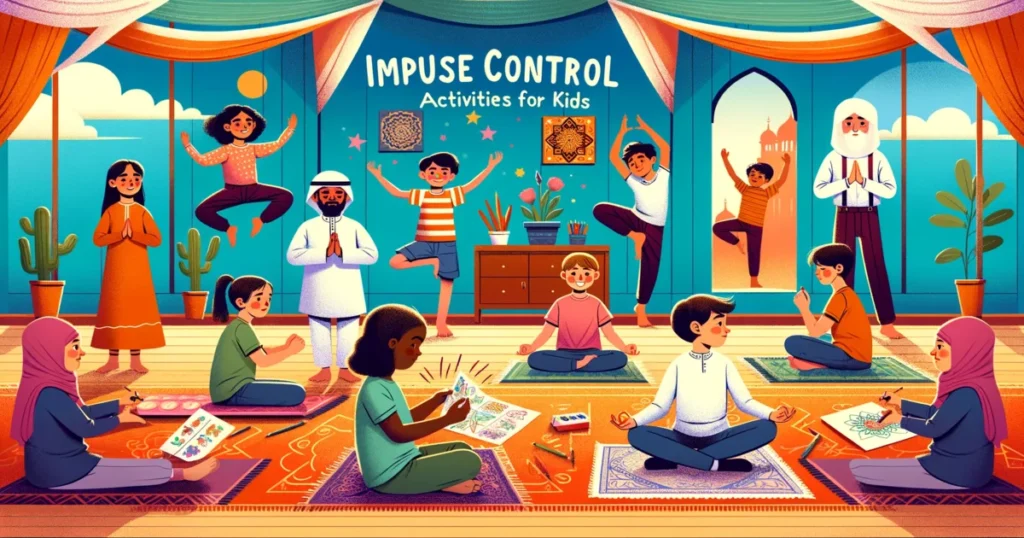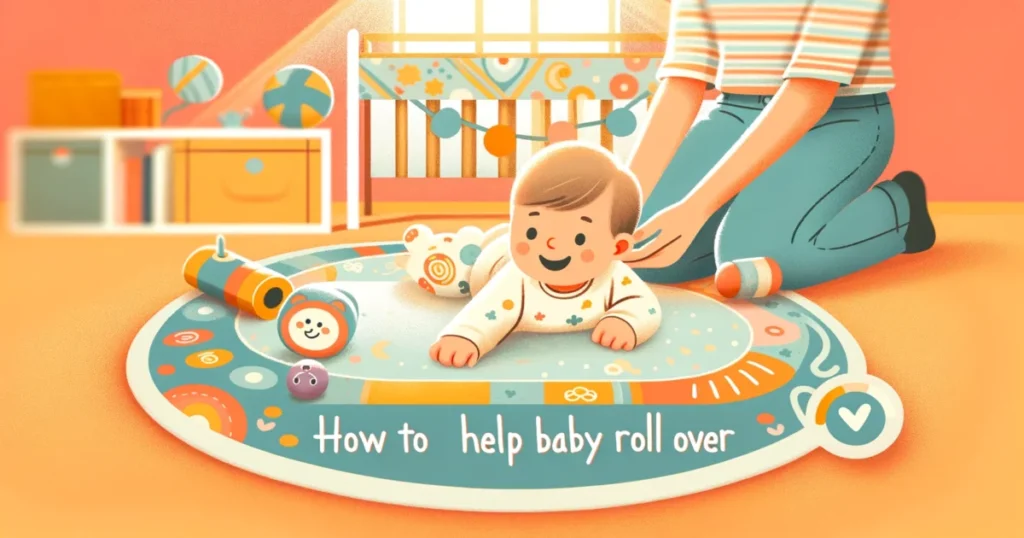Introduction:
Being a parent is like being on a big adventure with lots of surprises. Sometimes, we need a map to help us find our way through the ups and downs. That’s where this guide comes in handy! We’re going to explore something called “parenting with love and logic.” It’s all about using love and smart thinking to raise happy, responsible kids. So, let’s get started on this exciting journey together!
Parenting With Love and Logic download book

Setting Boundaries for parenting with Love and Logic:
Setting boundaries for parenting with love and logic is like drawing lines on a map to show where it’s safe to go. It’s super important for kids to know what’s okay and what’s not. When we set boundaries with love and logic, we’re being firm but kind. That means we’re clear about what we expect, but we also understand when things don’t go as planned. By doing this, we help our kids learn how to make good choices and stay safe.
Tip: Instead of just telling your kids the rules, try talking to them about why those rules are important. When they understand the reasons behind the boundaries, they’re more likely to follow them.
Encouraging Independence in Parenting with Love and Logic:
Independence is like spreading your wings and learning to fly on your own for . It’s all about becoming more and more capable as you grow up. When we encourage independence for parenting with love and logic, we’re giving our kids room to try new things and learn from their mistakes. We’re there to support them when they need help, but we also let them figure things out on their own.
Tip: Give your kids small tasks to do by themselves, like picking out their own clothes or making their bed. It helps them feel proud and confident in their abilities.
Effective Communication Strategies:
Communication is like the secret code that helps us understand each other better. When we communicate with love and logic, we listen carefully to what our kids have to say and try to understand their feelings. We also share our own thoughts and feelings in a respectful way. This helps us build trust and strong relationships with our kids.
Tip: Have regular family meetings where everyone gets a chance to talk about what’s on their mind. It’s a great way to solve problems together and make sure everyone feels heard.
Teaching Responsibility Through Consequences:
Responsibility is like being the captain of your own ship. It means taking charge of your actions and owning up to your mistakes. When we teach responsibility for parenting with love and logic, we let our kids experience the natural consequences of their choices. If they forget to do their homework, they might get a lower grade. But we’re there to help them learn from their slip-ups and do better next time.
Tip: Instead of punishing your kids for messing up, talk to them about what they could do differently next time. It helps them learn from their mistakes without feeling ashamed.
Modeling Positive Behavior for Parenting with Love and Logic:
Modeling positive behavior is like being a superhero who shows others how to be brave and kind. When we model positive behavior with love and logic, we’re like shining examples for our kids to follow. We show them how to be patient, how to solve problems, and how to treat others with respect. By doing these things ourselves, we inspire our kids to do the same.
Tip: Talk to your kids about why you make certain choices or react in certain ways. It helps them understand the thought process behind your actions.
Encouraging Problem-Solving Skills:
Problem-solving is like putting together a puzzle where every piece has its place. It’s all about finding creative solutions to tricky situations. When we encourage problem-solving with love and logic, we help our kids think outside the box and come up with their own answers. We’re there to offer guidance and support, but we also give them space to explore different options.
Tip: Encourage your kids to brainstorm ideas whenever they’re faced with a problem. You’ll be amazed at how creative they can be!
Promoting Self-Esteem and Confidence:
Self-esteem is like a shield that protects us from feeling small. It’s all about believing in ourselves and knowing that we’re worthy of love and respect. When we promote self-esteem with love and logic, we’re like cheerleaders cheering our kids on from the sidelines. We celebrate their achievements and remind them of how awesome they are, even when things don’t go perfectly.
Tip: Point out your kids’ strengths and talents whenever you get the chance. It helps them see themselves in a positive light.
Embracing Natural Consequences:
Natural consequences are like the bumps in the road that remind us to slow down and pay attention. They’re the results of our actions, whether good or bad. When we embrace natural consequences with love and logic, we let our kids learn from their mistakes without swooping in to save the day. We trust that they’ll figure things out on their own and grow stronger because of it.
Tip: Talk to your kids about the possible outcomes of their choices before they make them. It helps them think more carefully about their decisions.
Fostering Empathy and Compassion for Parenting with Love and Logic:
Empathy is like putting yourself in someone else’s shoes and seeing the world from their point of view. It’s all about understanding and caring about how others feel. When we foster empathy with love and logic, we teach our kids to be kind and compassionate towards others. We encourage them to think about how their actions affect those around them and to reach out a helping hand whenever they can.
Tip: Encourage your kids to think about how they would feel if they were in someone else’s situation. It helps them develop a sense of empathy and understanding.
Maintaining Consistency and Flexibility:
Consistency is like the steady beat of a drum that keeps us moving forward. It’s all about sticking to our routines and expectations. Flexibility, on the other hand, is like the wind that blows us in new directions when we least expect it. When we maintain consistency and flexibility with love and logic, we find a balance between structure and spontaneity. We set clear boundaries and expectations, but we’re also willing to adapt to changing circumstances when needed.
Tip: Stick to your family’s routines as much as possible, but don’t be afraid to shake things up every now and then. It keeps life interesting!

Table: Strategies for Parenting with Love and Logic
| Strategy | Description | Transition and Focus Keyword |
|---|---|---|
| Setting Boundaries | Make clear rules for safety and security to Encouraging Independence. | Transition to Encouraging Independence |
| Encouraging Independence | Give kids room to explore and bond with family. Transition to Effective Communication. | Move to Effective Communication |
| Effective Communication | Talk openly to build trust and understanding. Move to Teaching Responsibility. | Transition to Teaching Responsibility |
| Teaching Responsibility | Help kids learn from mistakes and grow. Transition to Modeling Positive Behavior. | Move to Modeling Positive Behavior |
| Modeling Positive Behavior | Show empathy and resilience as an example. Move to Encouraging Problem-Solving. | Transition to Encouraging Problem-Solving |
| Encouraging Problem-Solving | Encourage creative problem-solving and boost confidence. Transition to Promoting Self-Esteem. | Move to Promoting Self-Esteem |
| Promoting Self-Esteem | Build confidence with praise and support. Move to Embracing Natural Consequences. | Transition to Embracing Natural Consequences |
| Embracing Natural Consequences | Let children learn from their actions and grow. Move to Fostering Empathy. | Transition to Fostering Empathy |
| Fostering Empathy | Teach kindness and understanding to strengthen bonds. Move to Maintaining Consistency and Flexibility. | Move to Maintaining Consistency and Flexibility |
| Maintaining Consistency and Flexibility | Keep routines while being open to change. Conclusion: Summarize Strategies. | Conclusion: Summarizing Strategies for Parenting with Love and Logic |
Facts and Figures:
- Children who grow up with clear boundaries and consequences tend to have fewer behavioral problems and better self-control.
- Research shows that kids who are allowed to make their own decisions within safe limits develop a stronger sense of autonomy and confidence.
- Effective communication between parents and children has been linked to higher academic achievement and improved emotional well-being in children.
FAQs for Parenting with Love and Logic:
Q: How do I know if I’m setting boundaries effectively?
Effective boundaries are clear, consistent, and age-appropriate. They should be communicated calmly and respectfully to your child, with consequences that are fair and reasonable.
Q: Is it okay to let my child make mistakes?
Absolutely! Making mistakes is a natural part of learning and growing. Instead of shielding your child from failure, use it as an opportunity for them to learn and develop problem-solving skills.
Q: How can I encourage my child to communicate with me?
Create a supportive environment where your child feels safe expressing their thoughts and feelings. Listen actively, validate their emotions, and avoid judgment or criticism.
Final Thoughts on Parenting with love and logic:
Parenting with love and logic is about making sure our kids feel safe and understood while learning to make good choices. By setting clear rules and talking openly, we help them grow into confident and responsible individuals. Encouraging them to solve problems on their own and praising their efforts boosts their self-belief. With love and logic, we guide our children on the path to success and happiness.
- Clear rules and open communication make kids feel secure.
- Encouraging problem-solving and praising efforts boosts confidence.
- With love and logic, we help our children grow into happy and responsible adults.

Do you want to know more about Parenting ? Click here to read our easy tips on our blog!
- Reusable Water Balloons for Kids – Tips, Tricks, and Care
- Top 10 Road Trip Activities for Kids: Toddler Road Trip Activities
- Active Parent, Happy Child: Effective Tips for Modern Parenting
- Milialar(Milia) Explained: Causes, Symptoms, and Treatment
- How to Convince your Parents to Say Yes | Parental Approval


